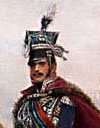 |
| recently reviewed titles |
While Tony Bath did have some interesting input for just the ACW period, sadly most of his work revolved around the details of a long-running Hyborean game that he had run in the 1970s and was very much an ancients and points system tour-de-force. GDW must have been happy with any 'uptick' in sales after his product hit the shelves.
Grant was more of a generic approach and touched on loads of subjects in all time-periods and even some of the speculative fiction in high-tech and fantasy realms.
The Nanaimo group has been discussing a campaign in ACW for some time now and I have put in a few immediate observances from my 21+ years of running Napoleonic (100 Days and Campaign of Nations) and Sci-Fi (Battletech mostly) minis campaigns on written postal, email and electronic forum systems as well as playing in at least three 'local' campaigns with Jeff Hudelson (of BlueBear fame).
The responses prompted me to review these titles so as to come at the resolution from a text supported point of view.
As this is potentially a local based game with email as a control factor, two methods come to the forefront by Bath and Grant:
Mini Campaigns (p61. of "Setting up a Wargames Campaign")
For this a series of teams of twos or threes were used.
While Tony did it with ancients and Wars of the Roses, we could just as easily use this for ACW:
Each 'side' breaks their available forces into three parts, then decides on the strength of forces to engage on one of three battlefields (which could be blind random or known by both sides and thus make overall plans for), with retreating forces kept track as well as the surviving winning forces (with each side having some recovery of wounded and routed troops, as well as the winning force on a field getting better re-supply) for a 'final push' game where the winner of the best of three takes on the looser of the best of three with the surviving attacking forces against the surviving retreating forces.
Thus you could see the first two battles going to one side and the third battle simply conceded, with a sacrificial blocking force to allow the majority of the troops to retire to the 'final battle' to attempt to shore up the final defender forces. Alternately the first two might split and make the third an all important tie-breaker and deciding battle for who will be having a chance to conquer and who will need to last-stand defend.
Okay, so much for something quick, as this will only take four table-top encounters to come to a conclusion, Bath writes about 'mini-campaigns' as something to fill in while a larger one is being organized or when a larger campaign has 'gone quiet' and isn't generating the expected field battles.
 |
| four battle mini-campaign |
The Use of Board Games (Chapter 23, p134-136, "Wargames Campaigns")
Here Grant uses a full chapter to expound on the value of using already existing board-based war-games to conduct the 'strategic' or 'operational' level of movement on the board map system, then convert the 'encounter battles' to the appropriate tabletop system that you may already be using to run the miniature battles.
While Grant admits to not having used the system himself, he vouches, as do I, for the effectiveness of using such games.
Columbia Games has a pair of games to simulate the American Civil War from the grand strategic point of view in Virginia, with Bobby Lee and in the west with Sam Grant
Here I leave a copy of the map from Sam Grant, as the discussion has been revolving around using the war in the west as the basis for a series of connected battle actions, hence a campaign.
 |
| Sam Grant map from Columbia Games |
What campaign effects and systems have you used?
What were the results?




















































1 comment:
The mini-campaign sounds interesting, especially if looking for a series of interconnected games.
Post a Comment